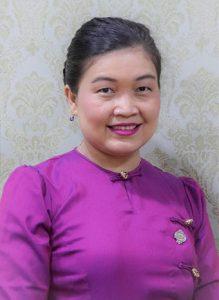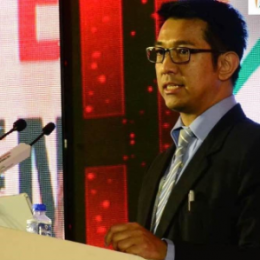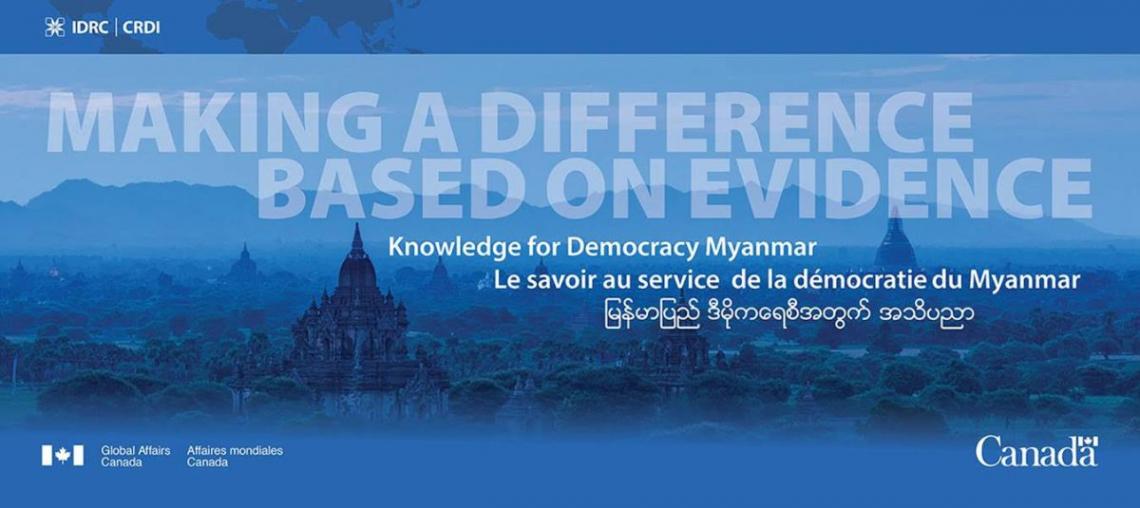This podcast looks at the challenges faced by women and men in Myanmar, a country with the world's longest running ethnic conflicts and a military coup in 2021. The experts discuss predicaments faced by communities, how gender budgeting improves a country's overall development and opportunities that arise for women in times of conflict. We invite you to listen to this podcast for a deeper insight into the issues.
The Knowledge for Democracy Myanmar (K4DM) Initiative, jointly supported by Global Affairs Canada and the International Development Research Centre (IDRC), aims to strengthen Myanmar's capacity to generate sound advice for public policy and the ability to use this knowledge for policymaking.
(Note: Experts are listed in order of first appearance in the podcast)

May Sabe Phyu
May Sabe Phyu is Director of the Gender Equality Network and a recipient of International Women of Courage Award as well as the Global Trailblazer Award for her role in advancing the Women, Peace and Security agenda in Myanmar. Gender Equality Network is a diverse and inclusive network of more than 130 civil society organisations, national and international NGOs, and Technical Resource Persons working to bring about gender equality and the fulfillment of women's rights in Myanmar.
More information about May Sabe Phyu.
More information about Gender Equality Network

Alexandre Pelletier
Alexandre Pelletier's research is on religious violence, ethnic conflict, and peace in Southeast Asia, with a focus on Indonesia and Myanmar, where he has conducted extensive fieldwork. He has a Ph.D. in political science from University of Toronto and is currently Senior Researcher and Managing Director at the Postcor Lab based at the University of Toronto. He is also a visiting fellow at the Southeast Asia Program at Cornell University.
More about Alexandre Pelletier

Ismene Gizelis
Ismene Gizelis is an expert in conflict dynamics, peacekeeping, gender equality and post-conflict reconstruction, and communicable diseases. She is professor at the Department of Government in the University of Essex. The research on Gender Budgeting described by Prof. Gizelis in this podcast was conducted with The Myanmar Institute of Gender Studies (MIGS), a think tank founded in 2015 to accelerate progress towards gender equality and empowerment of women and girls-and women participation in peace and political process.
More information about Ismene Gizelis

Min Zaw Oo
Dr. Min Zaw Oo is an expert on the peace process in Myanmar. He set up the first joint-ceasefire mechanism and is adviser to the Peace Commission in Myanmar. Previously, Min was involved in election-strengthening activities in Afghanistan and the Genocide Early Warning Project. The Myanmar Institute for Peace and Security (MIPS) is a non-governmental, non-partisan think tank providing stakeholders with the insight needed to navigate the challenges of peace and security in Myanmar.
More information about Min Zaw Oo
More information about The Myanmar Institute for Peace and Security
Check out more K4DM podcasts here
The Knowledge for Democracy Myanmar (K4DM) Initiative, jointly supported by Global Affairs Canada and the International Development Research Centre (IDRC), aims to strengthen Myanmar's capacity to generate sound advice for public policy and the ability to use this knowledge for policymaking. See more research supported by K4DM.


